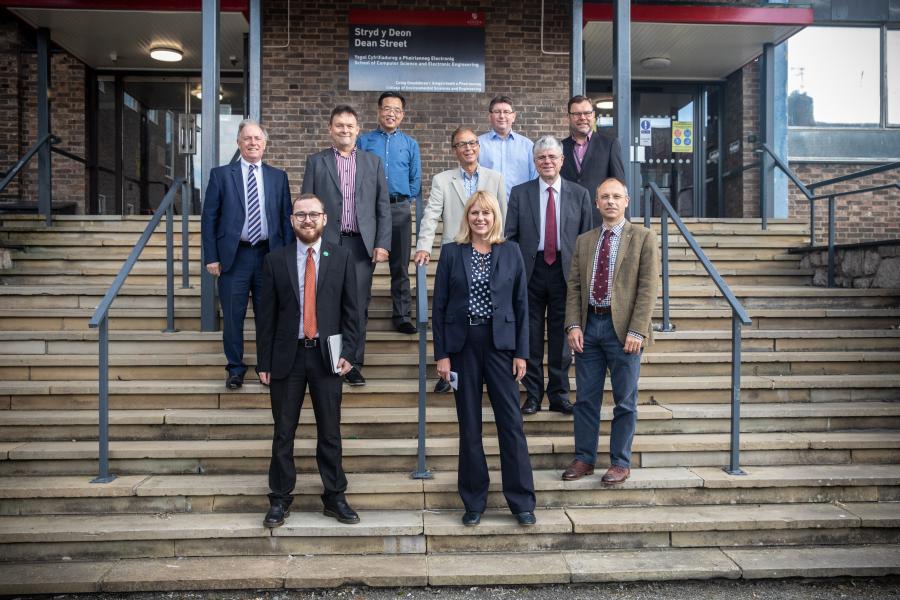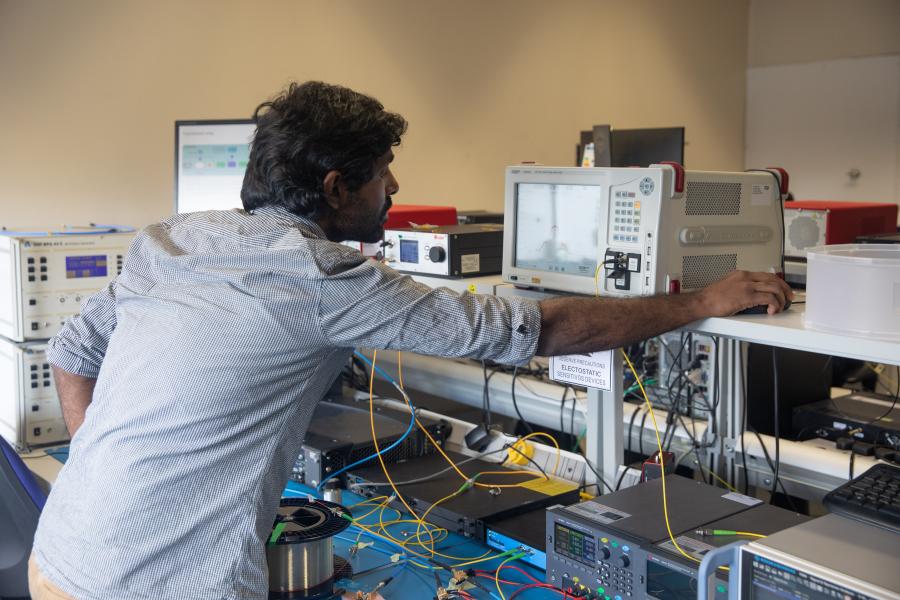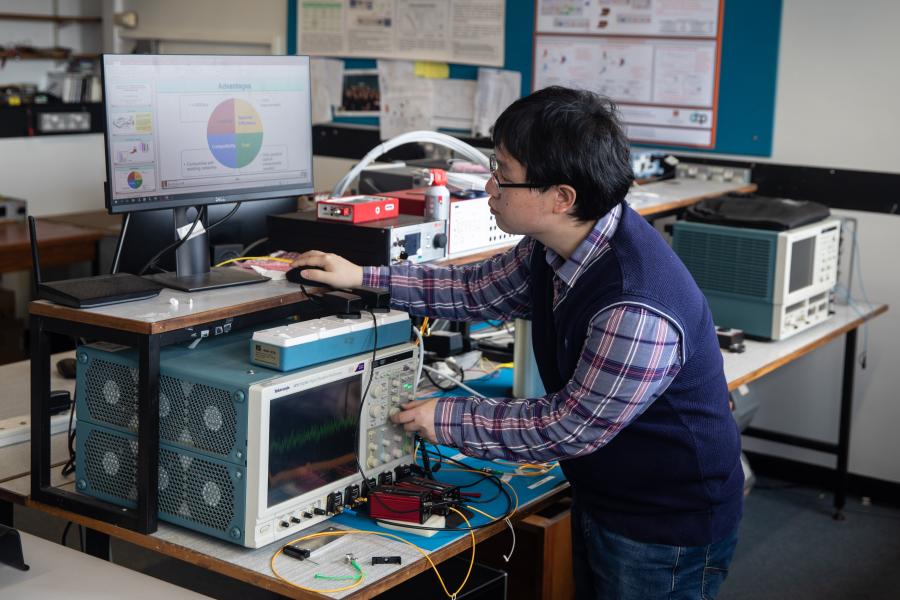A leading Welsh university has detailed its plan to help bring the latest in digital technology and 5G services to the region as part of a plan to develop North Wales into a centre of excellence for digital signal processing (DSP).
The scheme was discussed during a visit to Bangor University’s DSP centre in Bangor, Gwynedd, from Jack Sargeant MS and Carolyn Thomas MS.

Askar Sheibani, managing director at Deeside-based telecommunication equipment supplier Comtek Network Systems, which is working alongside the university on various infrastructure and connectivity-based projects, also addressed the visiting members about the centre’s link with private industry.
Digital signal processing, which converts real-world information such as audio, video, temperature or position into a digital and alterable format, has gained importance in recent years, with increased usage on a day-to-day basis.
Areas from automation and self-driving vehicles, to environmental and medical applications make use of DSP, which could also be key in improving the reliability and security of systems utilised daily.
Professor Jianming Tang, operations director at Bangor’s DSP centre, said: “The work we do at the site acts as a glue to not only develop digital systems which will make a national and global impact, but bring industry-leading businesses together to work on these plans.
“We enjoyed the chance to showcase our work to our business partners and Welsh government representatives, and we are looking forward to further expanding the infrastructure in place at the facility and continue developing North Wales into a true technological hub.”
Bangor University’s Digital Signal Processing Centre has submitted programme applications to various government bodies and authorities in 2021 with the aim of exploiting the various different technologies and research areas the centre has, as well as identifying where these can be taken in the future.
One application would see the centre and its partners work alongside communications companies such as Vodafone, Fibrespeed, and Comtek to deliver a £4.1m project bringing broadband connectivity to 1,300 properties in hard-to-reach locations within North Wales.
Another would utilise components designed and manufactured within the UK to make equipment which can allow users to jump between vendors on the nation’s 5G networks.
The DSP centre at Bangor University is the only research site in the UK dedicated to addressing DSP for 5G and beyond, currently working alongside 28 trade partners to deliver projects.
Professor Paul Spencer pro vice-chancellor leading on employability, company engagement and partnerships from Bangor University said: “The excellent work the facility is doing alongside industry to help develop new technology and services will future-proof many of the services we all utilise today.
“The site here at Bangor is a shining example of how the university is sitting at the forefront of modern digital technology development and helping develop the local skills and knowledge necessary to transform North Wales into a field-leading and future-focused region.”
I was astounded by the innovation shown at Bangor University who are leading the way in this technology which is fantastic for North Wales.
“I was also thrilled to hear of the project to bring broadband to properties on Anglesey and I am hoping that following on from that pilot it can then be rolled out across North Wales.
“To not have broadband is to be deprived as it has now become a necessity for everyday living, and I am so grateful and proud of the work the DSP centre are doing at Bangor University working in collaboration with businesses, Welsh Government, and public authorities.
It was an immense privilege to attend this event.
“This innovative project has the potential to place Wales ahead of the pack when it comes to connectivity and global innovation.
“As a former engineer myself it is difficult to overstate how impressed I am.




Comtek managing director Askar Sheibani said: “The events of the past two years have indicated to the entire world that we need to be focusing further on studies and developments in communications, and the DSP centre is perfectly poised to sit at the forefront of that field.
“Combining academic advancements with private sector backing means we can all work together to research and produce truly world-leading technology and services which will help put North Wales on the map as a global hub of digital excellence.
“Working alongside the DSP centre not only allows businesses to showcase and create state-of-the-art systems, but allows us to further develop our own workforce’s skills through the partnership.”
Also in attendance at the event were director Mike Crouch and business development manager Dale Weedman from telecommunications service provider Fibrespeed, which provides high performance fibre networks to North Wales, as well as digital programme manager for the North Wales Economic Ambition Board Stuart Whitfield.
The board has worked to upgrade digital networks and infrastructure across North Wales to support competitiveness and growth of the region’s business sector through the North Wales Growth Deal.
For more information about Bangor University, visit https://www.bangor.ac.uk and for more information about the DSP centre, visit http://dsp-centre.bangor.ac.uk/
- Bangor University’s Digital Signal Processing Centre opened in January 2020 and has filed eight patents and secured more than £12m to date in research grants focusing on future-leading technologies and systems.
- The programme was established with £4m of funding support from the European Regional Development Fund.




